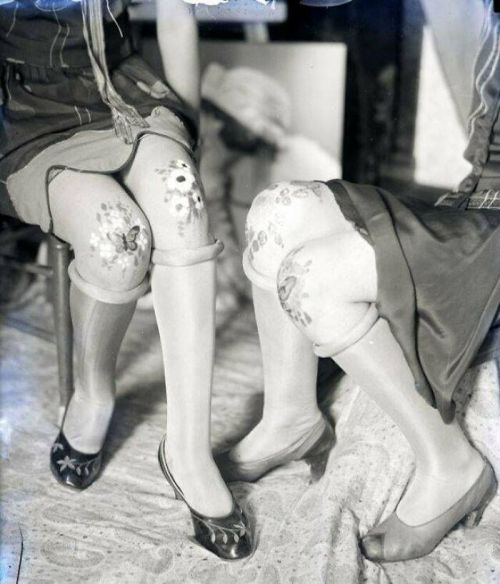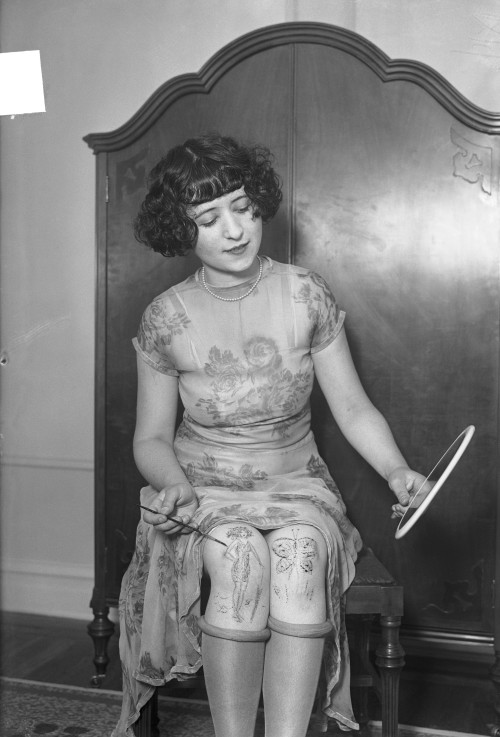sophiamcdougall: sartorialadventure: Rebellious girls in the 1920s wanted to anger and shock their V
sophiamcdougall: sartorialadventure: Rebellious girls in the 1920s wanted to anger and shock their Victorian-era parents, so not only would they bare their knees with short dresses, but they would also paint pictures to make sure an onlooker didn’t miss their risque hem length. Rolled stockings became a fad with the shorter hemlines, and girls would go get roses, butterflies, ocean scenes, or their dogs’ faces painted on their knees to further push their boundaries.Much like with most makeup in women’s history, this wasn’t just an act of creativity, but an assertion of independence. After World War I, more women gained financial independence with work, broke away from chaperoned parlor dates, and became a part of the public by walking the city streets without a guardian. The new generation felt a need to express this clear break from the old era of Gibson Girls and Victorian women, and they did so with the help of paint and knee rouge.“Because of rolled stockings and short skirts they, like their fair owners, are emancipated,” The San Francisco Examinershared in 1925. The girls were no longer wearing the oppressive corsets of the previous generation, which is partly why rolled stockings became a fad — there was nowhere to clip their hosiery to. Painted knees were also an experiment in owning sexuality. Rouged knees would seem flushed (hinting at sex,) and painted knees would bring attention to body parts that were stigmatized just a few short decades back. But these moments of self-rule were oftentimes punished, as students in Ohio Northern learned in 1925. Girls had been drawing roses on their knees, and the dean called an emergency meeting to get them to stop.“It was intimated that some of the professors had not been able to do their best work owing to the profusion of knees in certain classes, that it is difficult for a mere male instructor to think of the Einstein theory, for example, with a tastefully decorated knee — well, staring him in the face, as it were,” The San Francisco Examiner wrote.The fad eventually fell out of vogue, but it resurfaced again in the 1960s — during an era where skirts rose in hemline, women pushed for independence, and embraced their sexual freedom once more.Painted knees were the perfect compliment to mini-skirts and Bermuda shorts, and a student interviewed for The News in 1966 said that she painted her knees so often that she could “put it on faster than face makeup.” (source) So that’s what “I’m gonna rouge my knees and roll my stockings down” was about! You could not get this information back in 2002. -- source link
Tumblr Blog : sartorialadventure.tumblr.com
#fashion history#history#feminism

